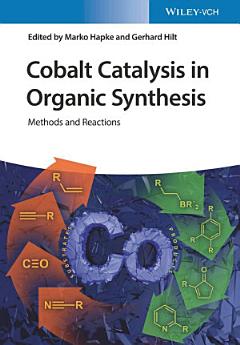Cobalt Catalysis in Organic Synthesis: Methods and Reactions
About this ebook
Over the past few decades, cobalt has turned into one of the most promising metals for use in catalytic reactions, with important applications in the efficient and selective synthesis of natural products, pharmaceuticals, and new materials.
Cobalt Catalysis in Organic Synthesis: Methods and Reactions provides a unique overview of cobalt-catalysed and -mediated reactions applied in modern organic synthesis. It covers a broad range of homogeneous reactions, like cobalt-catalysed hydrogenation, hydrofunctionalization, cycloaddition reactions, C-H functionalization, as well as radical and biomimetic reactions.
- First comprehensive book on this rapidly evolving research area
- Covers a broad range of homogeneous reactions, such as C-H activation, cross-coupling, synthesis of heterocyclic compounds (Pauson-Khand), and more
- Chapters on low-valent cobalt complexes as catalysts in coupling reactions, and enantioselective cobalt-catalyzed transformations are also included
- Can be used as a supplementary reader in courses of advanced organic synthesis and organometallic chemistry
Cobalt Catalysis in Organic Synthesis is an ideal book for graduates and researchers in academia and industry working in the field of synthetic organic chemistry, catalysis, organometallic chemistry, and natural product synthesis.
About the author
Marko Hapke is the Chair of Catalysis at the Johannes Kepler University in Linz, Austria, and also a group leader at the Leibniz Institute of Catalysis e.V. at the University of Rostock, Germany. His research centers on the development of novel cobalt catalysts for [2+2+2] cycloaddition reactions and the understanding of factors determinating reactivity and selectivity.
Gerhard Hilt is Full Professor at the Carl con Ossietzky University in Oldenburg, Germany. His research interests are applications of electron-transfer-activated transition-metal complexes in organic synthesis, quantification of Lewis acidities, organic electrochemistry, and surface-assisted transformations.





